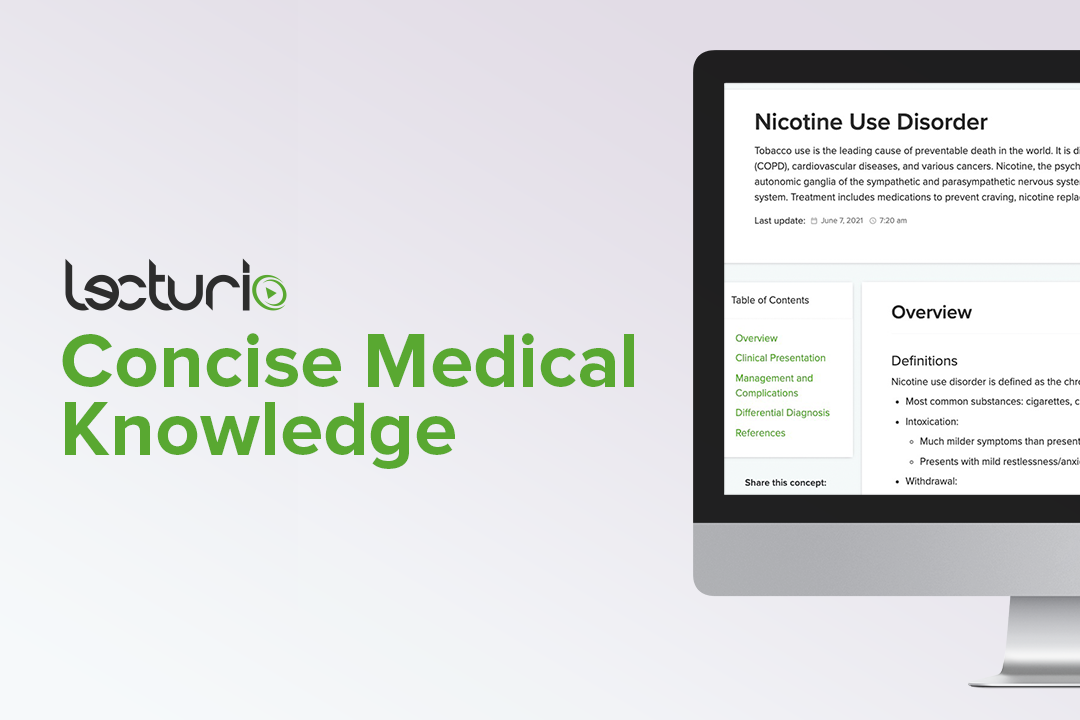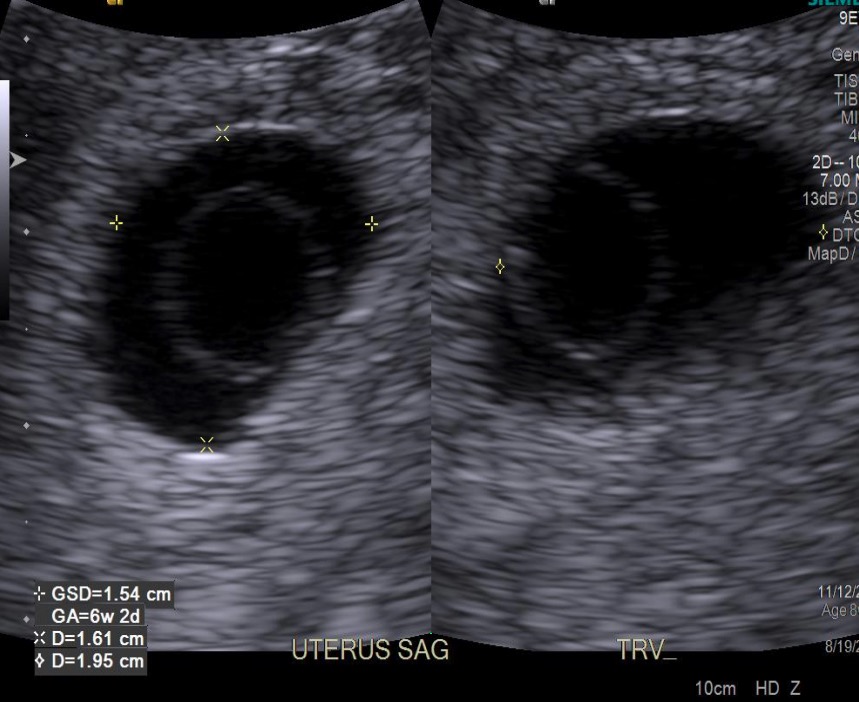Playlist
Show Playlist
Hide Playlist
Substance Abuse in Pregnancy: Tobacco Abuse
-
Slides SubstanceAbuseinPregnancy Obstetrics.pdf
-
Download Lecture Overview
00:00 So, let’s talk about substance abuse in pregnancy. So there are 3 areas that we are concerned about and we want to discuss today. First, tobacco use in pregnancy, next alcohol abuse and then we’ll talk a little bit about illicit drugs. So, definitely with tobacco abuse in pregnancy, there are some adverse outcomes and we’ll talk about those in a little bit more detail in the next slide. One of the things that’s important to know if we can get our patients to stop smoking prior to 24 weeks, their outcomes are the same as someone who has never smoked. So, when we think about what things can happen with tobacco abuse in pregnancy, one of the big issues is placental abruption. So, tobacco abuse can affect those blood vessels in the placenta and that can cause the placenta to prematurely separate from the uterus leading to abruption. One of the other adverse outcomes we see with tobacco abuse in pregnancy is preterm labor. Again, that placental abruption can cause contractions to happen and can increase our patient’s risk for delivering early. Also, there’s an increased risk of preterm premature rupture of membranes also leading to early delivery. Again, because tobacco abuse actually affects the blood vessels that are supplying the placenta, that can affect the growth of the baby and lead to fetal growth restriction. One of the outcomes that is not quite as well understood is Sudden Infant Death Syndrome and so this is important for our patients to understand that even if they stop smoking during the pregnancy, if they smoke around the infant after the infant is born, there is an increased risk of Sudden Infant Death Syndrome also known as SIDS. So, that’s great that we’ve talked about the things that can happen when you smoke in pregnancy but what do we do to help our patients not smoke? This is an important clinical pearl. So, the first thing is we want to ask. 01:50 We want to ask if they’re ready to stop smoking. If they’re ready, then we are able to move on to the next step. Next is to give advice and start to advice. We want to make sure they understand the ill effects of smoking and how that can harm them and their baby. Then again, we have to then make an assessment if they are ready to stop smoking, where they are in their pregnancy, how much are they smoking in the pregnancy, because that will kind of determine what we need to do to help them stop smoking. So, the 4th A in our 5 A’s is Assist. We want to assist our patients in being able to stop smoking. Now sometimes the assist is to help change the behavior. It’s not necessarily the nicotine that they are attached to that makes them smoke. So, for example, I’ve had a patient that told me that every time she takes a coffee break, she likes to smoke a cigarette. So, what we talked about was what things she could drink or eat with her coffee that might substitute that cigarette. For example carrot sticks, candy, gum and that was successful for her. Now, for other patients, it is the nicotine that they are attracted to that makes them continue to smoke. We can use nicotine patches. We can also use nicotine gum in pregnancy to help our patient stop smoking. But it’s very important to make sure that they understand that if they’re smoking and doing the nicotine that can significantly increase their blood pressure. So, we want to make sure that they are ready to stop smoking if they’re going to use these nicotine substitutes. Then the 5th A, one of the most important, is to make sure that we arrange for the help that our patients need so they can stop smoking. So, here’s a question for you. Which of the following is not an effect of smoking during pregnancy: preterm labor, preeclampsia, placental abruption, or fetal growth restriction? Let’s think about the things we just talked about. 03:38 Preterm labor, is that one of the things that can happen? Yes. We discussed that preterm labor happens when women smoke in pregnancy. Preeclampsia, does that happen? I don’t remember talking about that one. Let’s go on to the other options. Placental abruption, remember we said that smoking can affect those blood vessels going to the placenta causing the placenta to prematurely separate, which is a placental abruption, and then fetal growth restriction. Remember that tobacco again affecting the blood vessels can affect the growth of the fetus. So, preeclampsia is the one that is not caused by smoking during pregnancy.
About the Lecture
The lecture Substance Abuse in Pregnancy: Tobacco Abuse by Veronica Gillispie, MD, MAS, FACOG is from the course Preconception Care. It contains the following chapters:
- Substance Abuse in Pregnancy
- Tobacco Abuse in Pregnancy
Included Quiz Questions
Which of the following is NOT a known effect of smoking during pregnancy?
- Gestational hypertension
- Preterm labor
- Placental abruption
- Preterm premature rupture of membranes
- Fetal growth restriction
A 23-year-old G1P0 with a 2-year history of smoking a half-pack of cigarettes a day comes to you for her first prenatal appointment at 8 weeks gestational age. What can you advise her with regard to smoking cessation?
- You should advise her to quit immediately and that you are happy to provide her with options that can help her with the process.
- You should advise her that regardless of whether or not she quits, because of her history of smoking a half-pack a day for over 1 year puts her at increased risk of fetal growth restriction and preterm labor.
- You should avoid any discussion on smoking cessation for fear that she will not return for further prenatal care.
- You should encourage her to stop smoking for the duration of her pregnancy, but reassure that if she chooses to resume smoking after delivery there will not be any additional risk to her infant.
What is the first step in smoking cessation counselling?
- Ask if the patient is ready to stop smoking and educate her on the negative side effects of smoking on pregnancy and fetal well-being.
- Make your assessment of whether or not you think the patient is ready to quit smoking before initiating any discussion on smoking.
- You should first prescribe the patient nicotine patches regardless of whether or not they plan on quitting smoking cigarettes.
- You should first arrange for a family meeting to gather the support for getting the patient to quit smoking before trying to discuss it with the patient on your own.
- Patients rarely ever quit smoking, so it is best to focus your efforts on other aspects of her pregnancy during your limited appointment time.
Customer reviews
5,0 of 5 stars
| 5 Stars |
|
1 |
| 4 Stars |
|
0 |
| 3 Stars |
|
0 |
| 2 Stars |
|
0 |
| 1 Star |
|
0 |
It was easy to follow, she had a great outline, and I appreciated the question as a review at the end.





